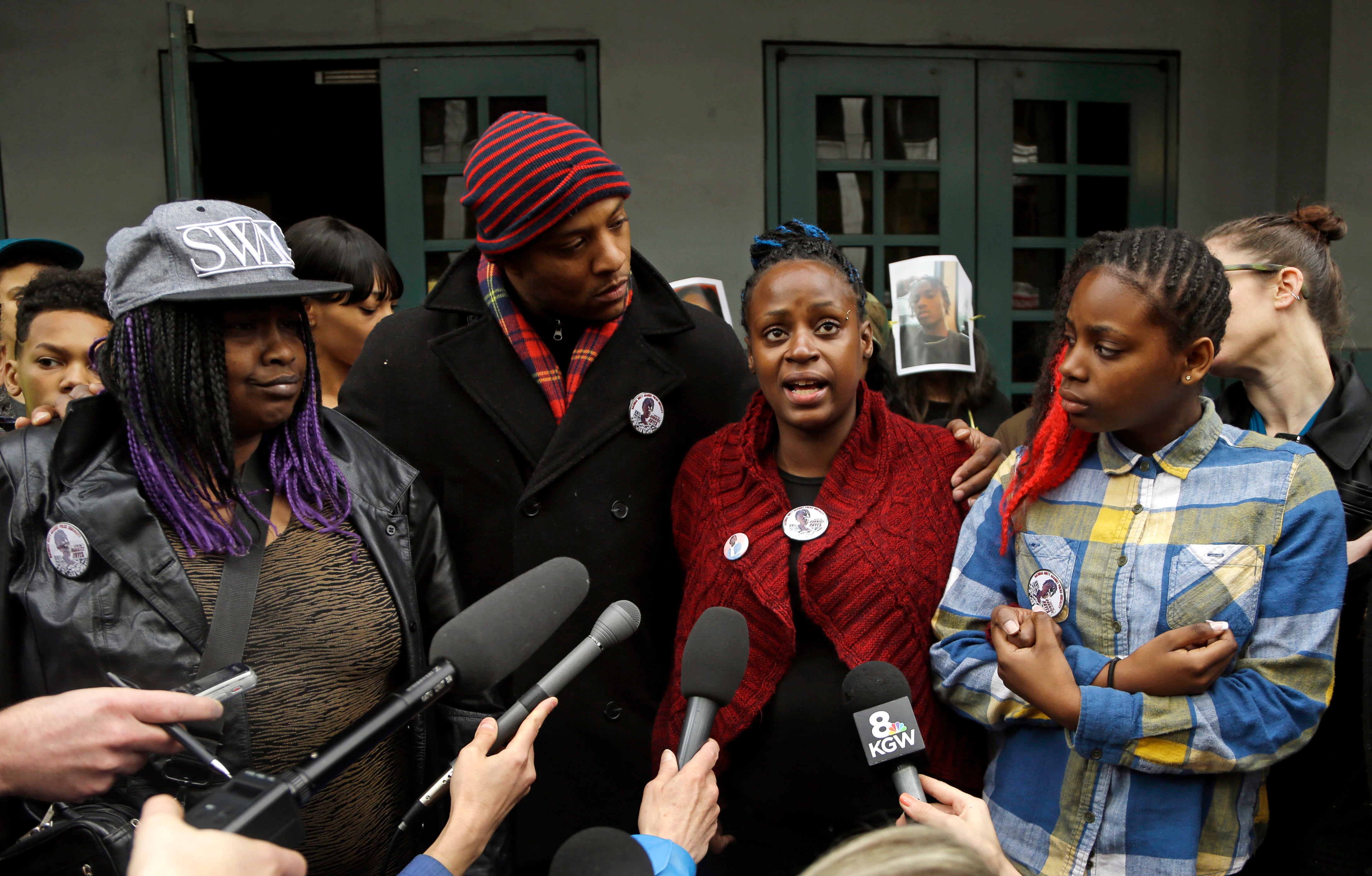Portland pays $2.1 million in police shooting of Black teen
Portland, Oregon, will pay more than $2 million to settle a wrongful death lawsuit arising from the police killing of a Black teenager in 2017

Your support helps us to tell the story
From reproductive rights to climate change to Big Tech, The Independent is on the ground when the story is developing. Whether it's investigating the financials of Elon Musk's pro-Trump PAC or producing our latest documentary, 'The A Word', which shines a light on the American women fighting for reproductive rights, we know how important it is to parse out the facts from the messaging.
At such a critical moment in US history, we need reporters on the ground. Your donation allows us to keep sending journalists to speak to both sides of the story.
The Independent is trusted by Americans across the entire political spectrum. And unlike many other quality news outlets, we choose not to lock Americans out of our reporting and analysis with paywalls. We believe quality journalism should be available to everyone, paid for by those who can afford it.
Your support makes all the difference.Portland Oregon, will pay more than $2 million to settle a wrongful death lawsuit arising from the police killing of a Black teenager in 2017, but family members of Quanice Hayes say they are still upset that the officer who pulled the trigger was not disciplined.
City commissioners apologized to the 17-year-old's family on Wednesday before approving the settlement during a City Council meeting. Hayes' death sparked protests in 2017 and was among those frequently cited by protesters who demonstrated against police brutality and racial injustice in Portland for months last summer.
A Multnomah County grand jury found no criminal wrongdoing by Officer Andrew Hearst, who fired three shots at Hayes on Feb. 9, 2017, while investigating an armed robbery.
According to previously released investigations, police discovered Hayes in an alcove in front of a home and ordered him to keep his hands up and crawl on the driveway toward officers. When Hayes appeared to reach toward his waistband, Hearst said he fired, killing Hayes.
Officers found a fake airsoft pistol in a flowerbed about 18 inches away from Hayes, according to court records.
The lawyer for Hayes' family, J. Ashlee Albies, called on the city this week to make meaningful changes so another Black teenager doesn’t die by police hands.
“There was no accountability,” said Steven Hayes, Quanice Hayes’ uncle, according to The Oregonian/OregonLive.
The family’s lawyers hired forensic biomechanical engineer Jesse L. Wobrock, who reviewed Hayes' wounds and the paths of the three bullets that hit him.
Wobrock found that Hayes was on his knees, his head and neck bent forward and his torso leaning slightly forward to comply with officer orders to “go down to his face” when Hearst fired the shots.
Hayes likely moved his hand to the ground to help him lie prone, Wobrock’s opinion said.
Mayor Ted Wheeler, who serves as police commissioner, urged the council to approve the settlement, recognizing that money won’t replace the family’s loss.
He urged everyone to consider how “to improve the public structures and systems that too often are unable to prevent the circumstances that caused us to be here today,” citing how schools, workplaces and other institutions fail young men, particularly Black and brown young men.